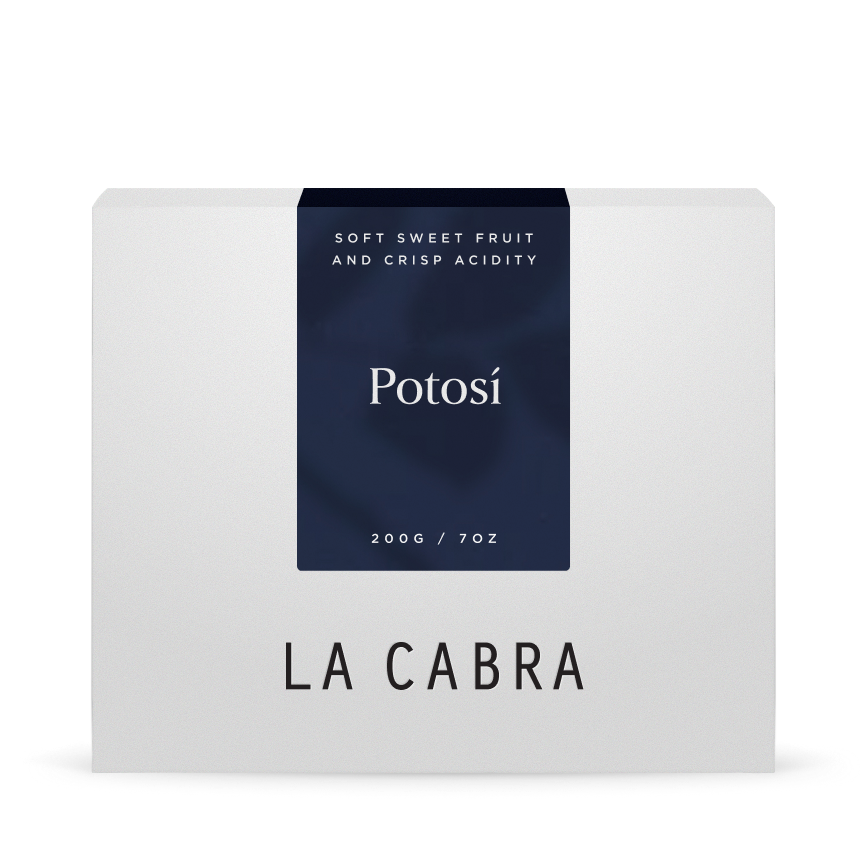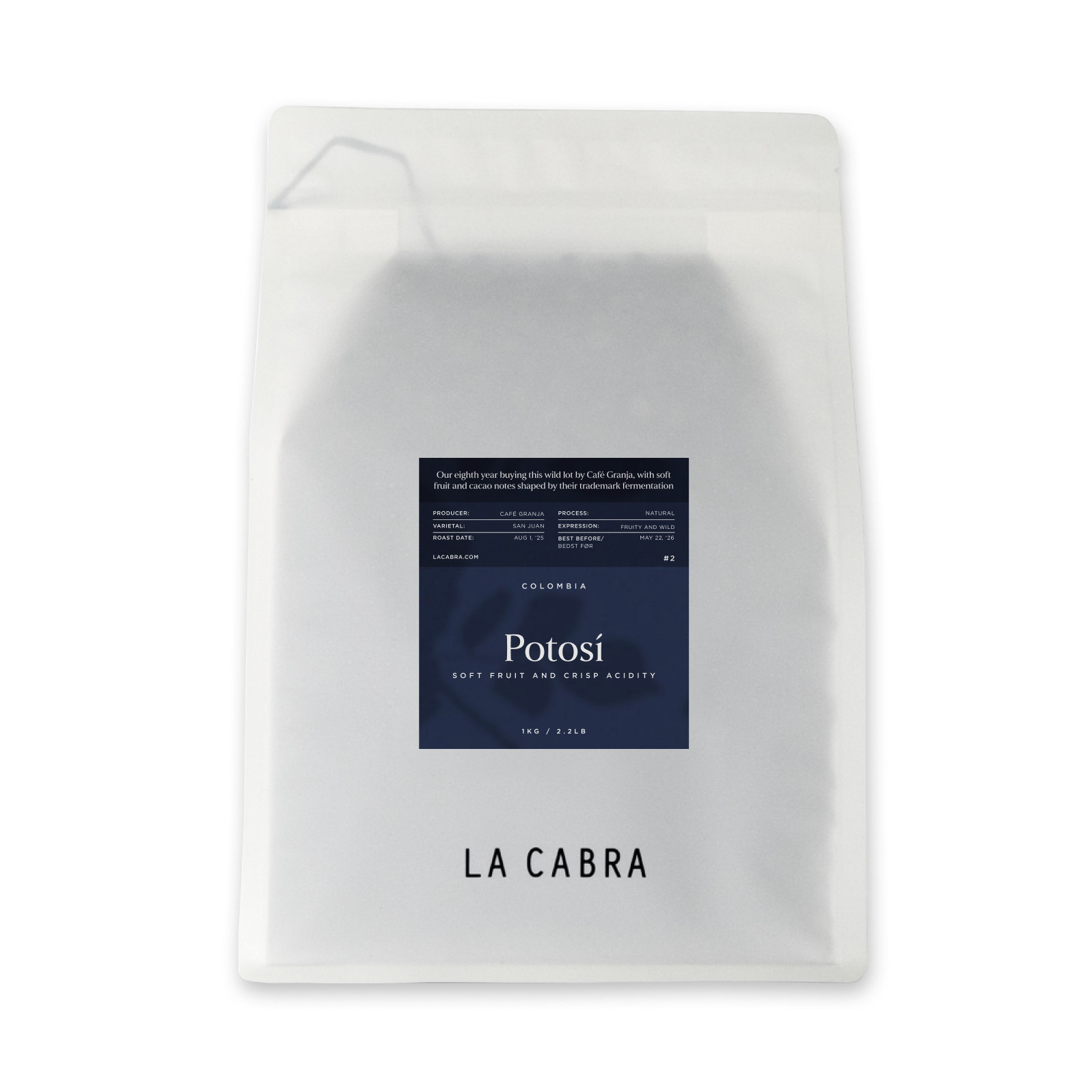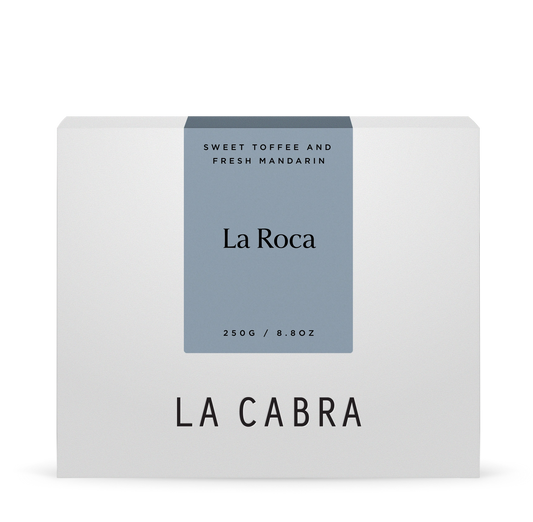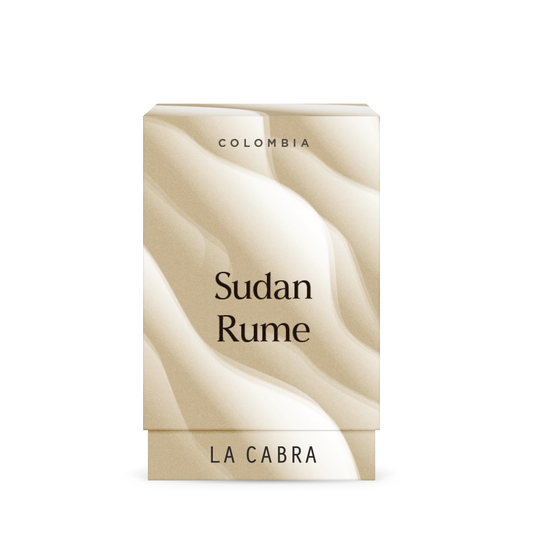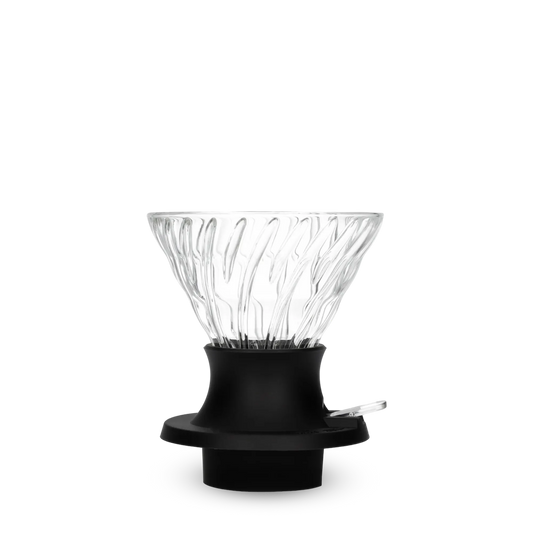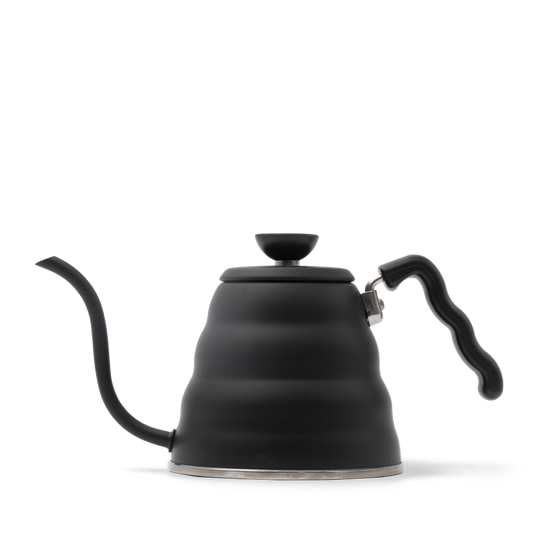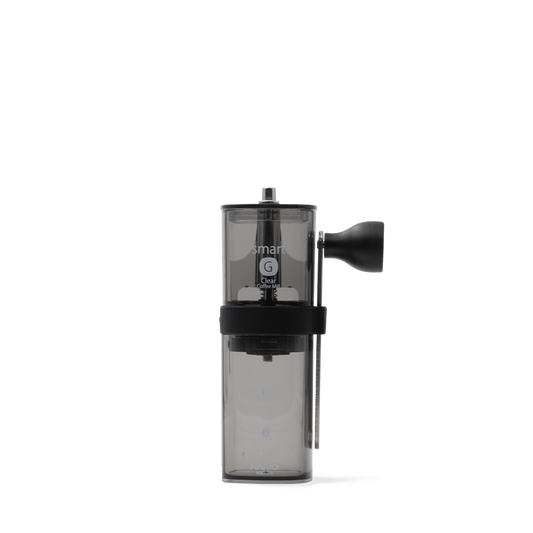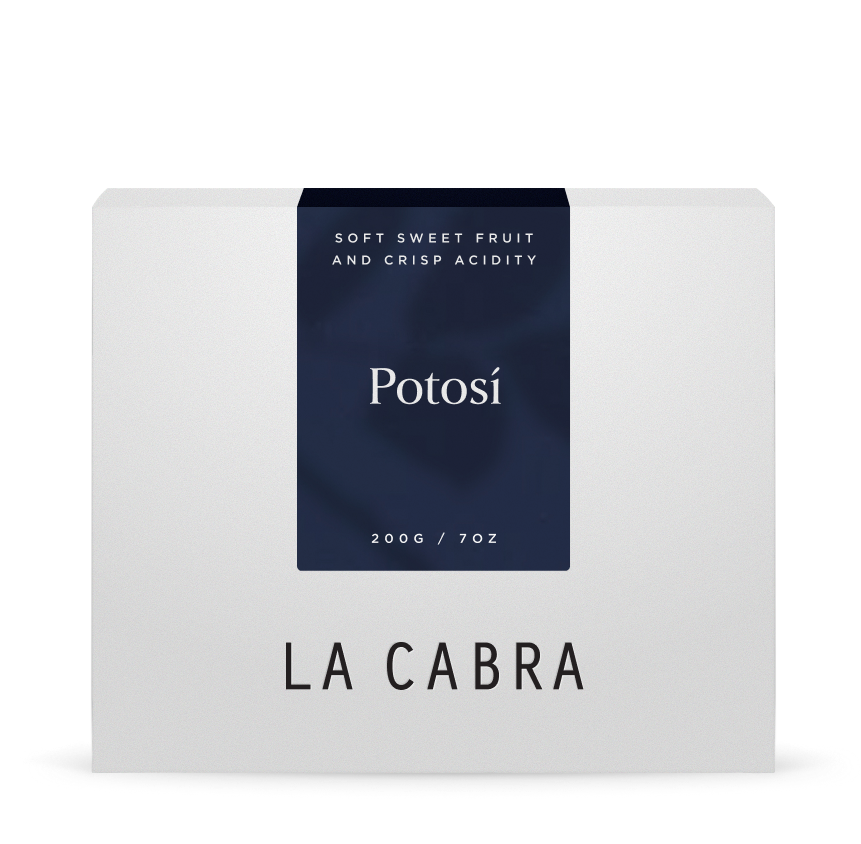
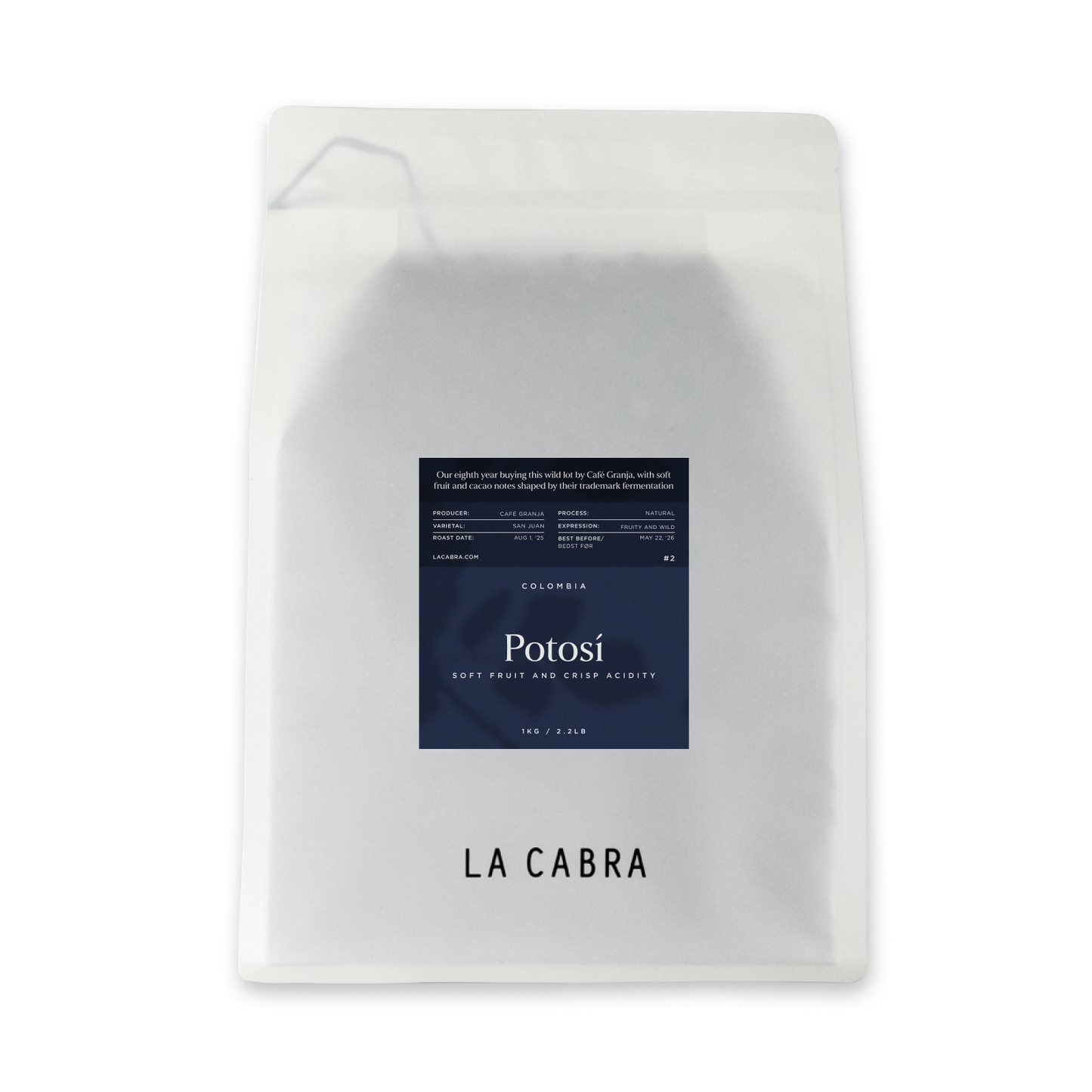
Potosí Natural
Finca Potosí is the original Granja farm, and one that we have come to hold dear over the years. We have visited the beautiful valley that forms the Las Margaritas and Potosí farms several times, and the natural XO lot from Potosí has become a stalwart in the La Cabra line-up. This is the eighth year we have purchased this particular lot from Cafe Granja, a coffee that illustrates Granja’s continuing commitment to set a new standard for flavour enhancement through post-harvest processing. This lot of the San Juan varietal is grown on the original Granja farm, Finca Potosí. The team at Potosí and Las Margaritas, just outside the town of Caicedonia in northern Valle, are constant innovators, even creating their own hybrid varietals through manual cross pollination of trees. San Juan is an example of this, a cross between Granja’s Bourbon and Pacamara plant stock.
In the mountains above Caicedonia, traditional natural processing is very difficult to control due to high average humidity of over 70%, and frequent rains during harvest. For this process, CGLE have used a very long in-cherry fermentation of around 50 hours in open temperature-controlled tanks. After the fermentation, the cherries are transferred to drying silos for a slow and controlled mechanical drying, making a full natural process possible in this humid and damp climate.
Their meticulous production process has resulted in a coffee that creates a balance between primary terroir flavours, and secondary process-driven flavours. In this cup, this means fresh and bright acidity from the high altitude Cauca Valley terroir, combined with soft ripe fruit and a heavy rich sweetness, like we’d expect from a great natural.

Café Granja La Esperanza
The Herrera family purchased Finca Potosí in 1945 and planted several varieties that were unusual for Colombia at the time, including yellow and red Bourbon. This started the Granja tradition of experimentation, leading to some recognition by other farmers in the Cauca Valley.
The large family of 14 children did much of the work on the farm themselves, but two brothers took particular interest in coffee production, and in the late 1990’s, Rigoberto and Luis took over the family business and started the push towards what Granja is now. They purchased small farms to add to their portfolio, and began the process of converting all of their coffee growing to use organic farming practices. They also looked outside Colombia for further insight, and jumped at the opportunity to lease a small farm in Panama. Rigoberto moved, and his years of producing experience led to a lot of their Geisha winning the Best of Panama within 2 years.
When Rigoberto returned to Granja, he brought back not only experience, but Panamanian Geisha seeds. These seeds were the foundation for the next stage of growth, beginning to chase distinct flavour profiles and the super high end specialty market. The experience of bringing a Panamanian varietal to Colombia was pivotal to Granja in their endeavour to adapt more exotic varietals to the Colombian soil, showcasing a wide view of the Cauca Valley terroir.
They have also begun to experiment with unique processing, using open and closed tank fermentations to create incredible control over fermentation, for both their washed and natural coffees. They also use mechanical drying extensively, allowing very tight control over length and degree of drying. This type of fermentation results in very low water usage, compared especially to traditional washed processing. This is another of Granja’s core values, focussing on sustainability. They have also worked very hard on maintaining local floral and fauna, using waste products from the farm to fire their mechanical driers, and switching to organic farming methods.



